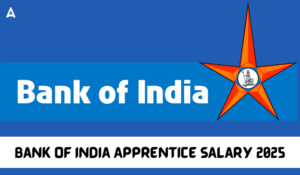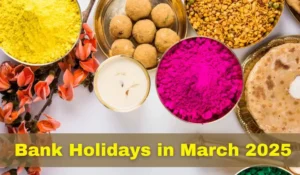Dear Readers,

The recent spate of peasant protests across wide swathes of the country points sharply to the unjust folly and sheer unviability of the path of development that India has embraced, especially in the reform era since the late 1980s. Even, say, a modest food critic in metropolitan India collects an immodest annual pay package which can easily go into seven figures. Such compensation is not even a dream for any small or marginal food-grower in the country, someone who works much harder and who is immeasurably more significant for the food security of India. It is such daylight disparity between the lives of villagers and city-dwellers which constitutes the background to an increasingly simmering discontent amongst the poor in India’s villages and cities. Last month’s farmers’ protest in Mumbai is one of many where the simmer boils over to more overt expressions.

Vocabulary is an important part of English that helps you deal with all kinds of questions in objective as well as descriptive papers of various exams. You can learn new words daily from our Daily Word List. Learn the words and make your own sentences on the basis of the given word list. Here are a few words and phrases from articles published in a reputed Newspaper.
The recent spate of peasant protests across wide swathes of the country points sharply to the unjust folly and sheer unviability of the path of development that India has embraced, especially in the reform era since the late 1980s. Even, say, a modest food critic in metropolitan India collects an immodest annual pay package which can easily go into seven figures. Such compensation is not even a dream for any small or marginal food-grower in the country, someone who works much harder and who is immeasurably more significant for the food security of India. It is such daylight disparity between the lives of villagers and city-dwellers which constitutes the background to an increasingly simmering discontent amongst the poor in India’s villages and cities. Last month’s farmers’ protest in Mumbai is one of many where the simmer boils over to more overt expressions.
As a recent petition to the National Green Tribunal makes plain, the same brutal asymmetry is evident when one notices the difference in access to water between rural-agricultural and cricket-crazy metropolitan India. And similar stories can be told when it comes to other requirements of agriculture, from electricity to fair prices for produce and inputs to loans and loan waivers. Food supplies are so taken for granted that agriculture is simply absent from the everyday cognitive radar of metropolitan policy-elites. A recent study showed that agriculture takes up less than 5% of coverage in mainstream media. Farming as an occupation is seen as a thing of the past, as if India — never mind the more than 700 million people still directly dependent on it — is meant to follow blindly in the footsteps of the industrialized world.
Time will prove that this is an impossible, irrational dream suffering profoundly from what philosophers call a ‘fallacy of composition’. Far from everyone, not even a majority of the present rural population of India can be offered employment in non-agricultural economic activities, even if this was considered desirable. Unless the present plank of developmental policies is set aside in favour of a radically different approach, deprivation from basic needs will continue for hundreds of millions of people, as will gross inequalities. The respective fortunes of the small, marginal farmers as much as those of metropolitan elites seem to have been pre-calibrated by the path of ‘development’ India has embraced since the reform era began in 1991, if not since 1947 itself. Let us honestly think through the assumptions of such a vision as our political, commercial and policy-elites continue to impose on the country, quite regardless of the dispensation in office in New Delhi. The vision is imitative. It assumes that India is pre-destined to follow the path of industrialisation that the Western world and East Asia have taken. The once-implicit and now explicitly stated goal is to ensure that only a tiny fraction of India’s work force remains in agriculture.
1. Spate: (noun) : अतिवृष्टि
Meaning: a large number of similar things coming in quick succession.
Synonyms: series, succession, cluster, string, outbreak, wave, flurry, rush, deluge
2. Swathes: (noun) : चौड़ी पट्टी
Meaning: a broad strip or area of something.
Synonyms: bandage, swaddle, bind, wrap, cover, clothe
Antonyms: uncover
3. Folly: (noun) : अज्ञानता
Meaning: lack of good sense; foolishness.
Synonyms: absurdity, craziness, idiocy, lunacy, inanity, fatuity, obliquity,
Antonyms: carefulness, intelligence, sense, wisdom, knowledge, understanding
4. Embrace: (verb) : ग्रहण करना
Meaning: hold (someone) closely in one’s arms, especially as a sign of affection/ accept (a belief, theory, or change) willingly and enthusiastically.
Synonyms: grasp, clasp, clinch, cling, cradle, cuddle, enfold, entwine, fold, fondle, grab
Antonyms: let go, loose, uncover, release, unfasten, exclude, unwrap
5. Modest: (adjective) : विनयपूर्ण
Meaning: unassuming in the estimation of one’s abilities or achievements.
Synonyms: humble, moderate, prudent, bashful, blushing, chaste, demure, discreet, meek
Antonyms: brave, complex, complicated, intricate, arrogant, conceited, immodest
6. Simmer: (verb) : धीरे धीरे खौलना
Meaning: (of water or food that is being heated) stay just below boiling point while bubbling gently.
Synonyms: smolder, stew, ferment, churn, fret, seethe, fume, parboil, rage
Antonyms: soothe, freeze, cool
7. overt: (adjective) : खुल्लमखुल्ला
Meaning: done or shown openly; plainly apparent.
Synonyms: apparent, definite, undisguised, manifest, observable, patent
Antonyms: obscure, uncertain, unclear, concealed, hidden, private, secret
8. Brutal- (adjective) : निर्दयी
Meaning: savagely violent/ unpleasant or harsh.
Synonyms: savage, cruel, vicious, barbarous, callous, ferocious, inhuman, severe, ruthless, gruff
Antonyms: calm, compassionate, courteous, gentle, mild, polite, tender, smooth, generous, tame, humane
9. Cognitive: relating to cognition.
Cognition: (noun) : संज्ञानात्मक
Meaning: the mental action or process of acquiring knowledge and understanding through thought, experience, and the senses.
Synonyms: emotional, intellectual, subjective, imaginary, cerebral, intellective, experimental
Antonyms: physical
10. Imitative: (adjective) : अनुकरणशील
Meaning: copying or following a model or example.
Synonyms: counterfeit, echoic, artful, derivative, deceptive, emulative, emulous, forged, mimetic
Antonyms: different, genuine, original












 Bank of India Apprentice Salary 2025 and...
Bank of India Apprentice Salary 2025 and...
 Bank Holidays in March 2025, Monthly Lis...
Bank Holidays in March 2025, Monthly Lis...
 Preparation Tips for CIL MT Numerical Ab...
Preparation Tips for CIL MT Numerical Ab...




